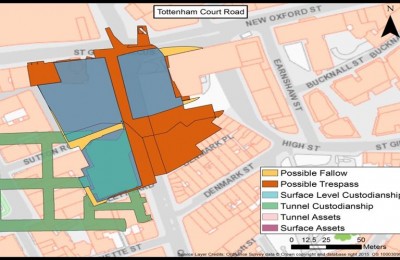The Crossrail Act gave the project powers to acquire over 150 hectares of surface land and over 10 million cubic metres of subsoil, in which over 1500 individuals or organisations had an ownership interest. The Act provided a time limit of 5 years in which these powers were to be exercised to complete the acquisition process and ensure all the land and associated rights over land were available for the construction and long-term operation of the railway.
Once acquired Crossrail managed the land safely and responsibly, including arranging for custodianship to be passed between contractors involving keeping detailed records and ensuring all responsibilities and obligations were covered.
Crossrail is the first transport project to deliver integrated station designs with three elements in mind: the station, above station property development and improved public spaces. Each element complements the other to create places and transform spaces.
The route will serve 40 stations, with 10 new stations and upgrades to many existing ones. Crossrail will have a dramatic impact on improving local areas. Local authorities and developers will be able to tap into the increased accessibility offered by the new railway to enable regeneration and improvements.
The key lessons learned relate to managing one of the most complex compulsory purchase programmes ever undertaken in the UK; managing a dynamic estate which has completely changed in character over the life of the programme; creating commercial value from our property interests which can be recycled into the project and; creating high quality spaces and places which both add value to the programme and create a positive lasting legacy for London.
The learning legacy from Crossrail’s Land and Property activity is presented in the four topic areas below.
KEY TOPIC AREAS





